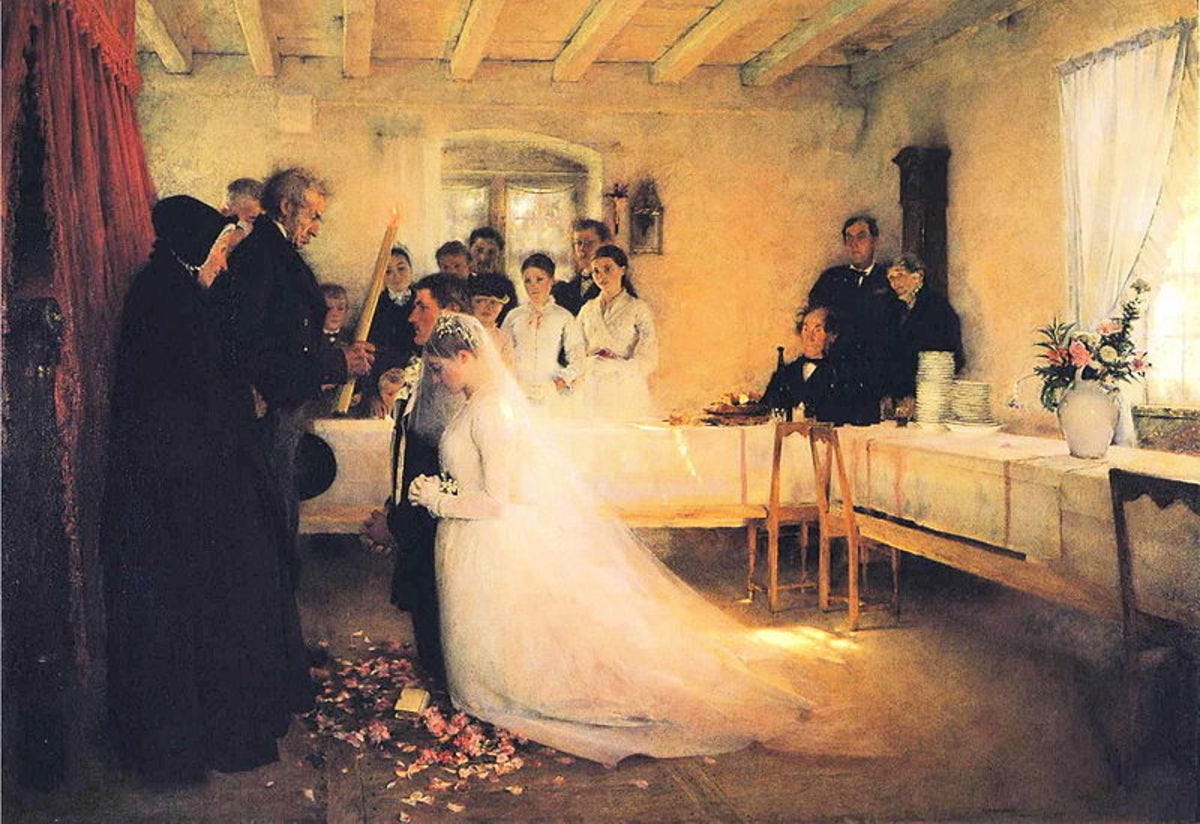From THREE DISCOURSES ON IMAGINED OCCASIONS (1845)
On the resolution of marriage.
“How utterly different married life and marriage conditions are in this world, and yet there is one resolution (Beslutning) common to each and every one or can be so: that love (Kjerlighed) conquers everything. This resolution is the beginning, and in this resolution is contained a true conception of life and of oneself and hence of God. Then the end becomes like the beginning—that love has conquered everything.”
It is well-known that, in August 1841, Kierkegaard called off his engagement to Regine Olsen (1822-1904)—a decision that would inspire a number of his most famous books and, in turn, set him on a unique vocational path. Yet, whether in spite (or because) of his broken engagement, Kierkegaard wrote a great deal about the significance of marriage, both in pseudonymous and signed works. This passage is taken from “On the Occasion of a Wedding” (Ved Anledningen af en Brudevielse), wherein Kierkegaard extols that which he himself felt unable to do—namely, make a marriage vow. Just why that was the case remains a matter of debate, though “On the Occasion of a Wedding” suggests that Kierkegaard did not take marriage lightly. Indeed, in keeping with the understanding of love developed elsewhere in his authorship, he argues that marital love is not ultimately a matter of, say, good feelings or overcoming earthly challenges. Rather, it is an earnest decision in which one comes to see oneself as an ethical and religious agent capable of expressing the eternal.


